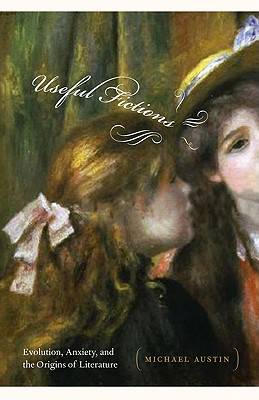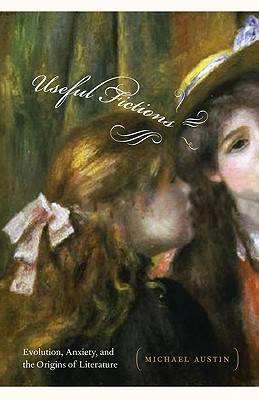
- Afhalen na 1 uur in een winkel met voorraad
- Gratis thuislevering in België vanaf € 30
- Ruim aanbod met 7 miljoen producten
- Afhalen na 1 uur in een winkel met voorraad
- Gratis thuislevering in België vanaf € 30
- Ruim aanbod met 7 miljoen producten
Zoeken
€ 68,95
+ 137 punten
Omschrijving
"We tell ourselves stories in order to live," Joan Didion observed in The White Album. Why is this? Michael Austin asks, in Useful Fictions. Why, in particular, are human beings, whose very survival depends on obtaining true information, so drawn to fictional narratives? After all, virtually every human culture reveres some form of storytelling. Might there be an evolutionary reason behind our species' need for stories? Drawing on evolutionary biology, anthropology, narrative theory, cognitive psychology, game theory, and evolutionary aesthetics, Austin develops the concept of a "useful fiction," a simple narrative that serves an adaptive function unrelated to its factual one. In his work we see how these useful fictions play a key role in neutralizing the overwhelming anxiety that humans can experience as their minds gather and process information. Rudimentary narratives constructed for this purpose, Austin suggests, provided a cognitive scaffold that might have become the basis for our well-documented love of fictional stories. Written in clear, jargon-free prose and employing abundant literary examples--from the Bible to One Thousand and One Arabian Nights and Don Quixote to No Exit--Austin's work offers a new way of understanding the relationship between fiction and evolutionary processes--and, perhaps, the very origins of literature.
Specificaties
Betrokkenen
- Auteur(s):
- Uitgeverij:
Inhoud
- Aantal bladzijden:
- 192
- Taal:
- Engels
- Reeks:
Eigenschappen
- Productcode (EAN):
- 9780803230262
- Verschijningsdatum:
- 1/01/2011
- Uitvoering:
- Hardcover
- Formaat:
- Genaaid
- Afmetingen:
- 140 mm x 218 mm
- Gewicht:
- 385 g

Alleen bij Standaard Boekhandel
+ 137 punten op je klantenkaart van Standaard Boekhandel
Beoordelingen
We publiceren alleen reviews die voldoen aan de voorwaarden voor reviews. Bekijk onze voorwaarden voor reviews.











